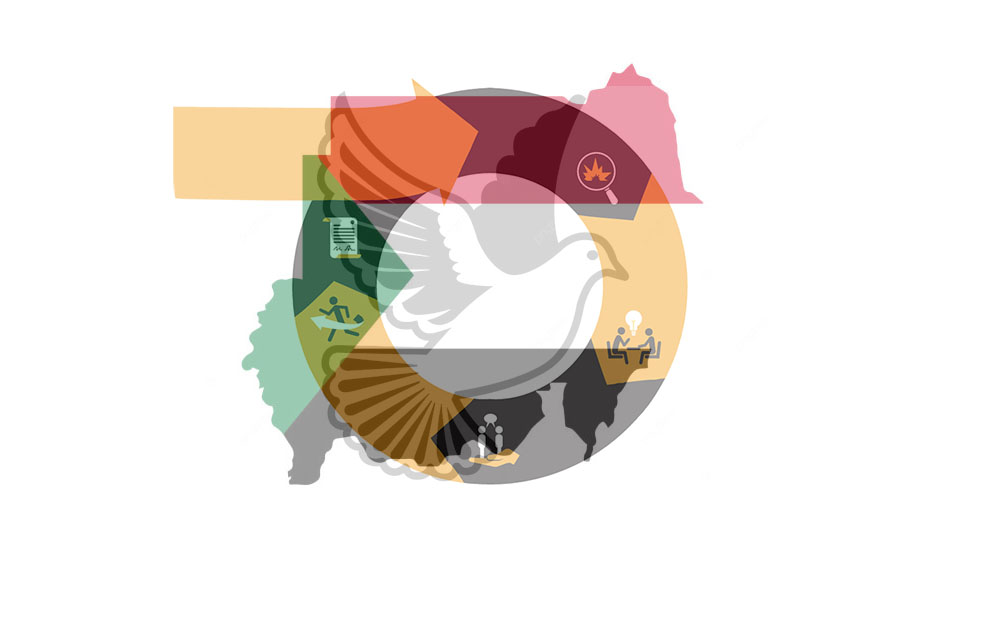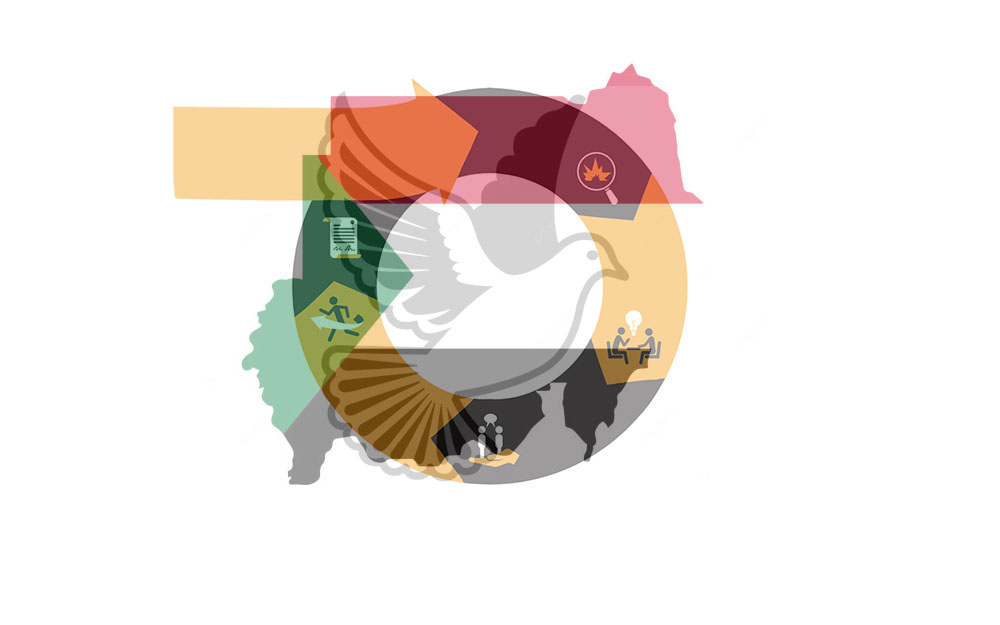
Towards a culture of peacebuilding
Hassan Khalid
Studies centered on peacebuilding and conflict resolution between parties (States, individuals, groups) have increased in frequency after the disasters that accompanied the two Cosmic Wars and the emergence of Cold War signs between the United States of America and the Soviet Union.
Religious discourse has not diminished the call for such a culture. Those who consider his religion to be one of love for peace and others who advocate delinquency for peace if his opponents misdemeanors do so.
Since the primary objective of peacebuilding and conflict resolution studies is primarily to prevent and deal with conflicts in the event of conflict, the mechanisms for resolving these various conflicts, "conflicts", are one of the key elements for establishing a culture of peace and reaping its benefits, and to avoid the detailed linguistic narrative of peace and its meanings and connotations.
Peace in short is defined as (against war) and as: (absence of unrest, acts of violence and inter-fighting).
Peace (which is the exclusive alternative to wars, conflicts and instability) is particularly urgent as we live in a world where wars have abounded and conflicts and conflicts have grown increasingly frequent.
The concept of peacebuilding refers to the identification of the structures that constitute the basis and requirements of the life of the individual/s - Groups - communities and their support, whose mission is exclusively to establish and promote peace and its empowerment; Not to be dragged into new conflicts, but to try to encircle them. and not to repeat it again, which gave rise to what is known as preventive diplomacy. working in one hand and in a permanent and well-defined manner to solve the difficulties and dilemmas facing the individual, whether human, cultural, social or even economic conflict ", that these or one problems are the main cause of war and conflict.
The existence of conflicts necessitates and necessitates the pursuit of permanent or timely peacebuilding "truce", knowledge of the causes of conflict and the development of an agenda for peace through formal or alternative channels if the former eludes, and because conflict is a competition between individuals, groups or even States for values, resources or interest in which various possible means are used (political Machiavellian) to reach the desired, whether legitimate or unlawful.
War, when it breaks out (far from delving into causes), is devastating and at all levels in any society with the balance of consequences, everyone enjoys its absurd fire, and there is the internal peace that is the compatibility between the requirements of the self and their balance with how to obtain those requirements without changes and fragmentation in the human interior (perhaps better to show this in a special research).
The region can hardly find or find a segment and has not been affected by this long-standing atmosphere because the region inspires cross-border and continental aspirations, from these segments and the most affected by the segment/children we mean to them under 18 years of age, because of their "direct and future" risks and consequences.
In the Arab Spring, the war produced a number of "terrifying" consequences. In a bulletin issued by the United Nations Population Fund (UNFPA) on the effects of conflicts in the Arab country in general (the consequences for Kurdish society also do not differ), where the most affected "children" segment was among the societal segments in terms of consequences, inter-conflict "civil wars".
1. I paid children of school age to "drop out" to leave the classroom. They only find before them the "labour market is scarce." (Child labour) "In flagrant violation, they work in occupations that do not align their energies and ages, and they work in occupations" Inferior "and simple and illusory/Selling smoke - gum/This is a deviable generation with multiple forms, not infrastructure." Schools "available and unsafe, nor" specialized "educational staff available in the circumstances of war and subsequent displacement and asylum, displacement with their families or refuge in neighbouring or other countries, and even in asylum states" Neighbourhood "does not find enough seats - the funding crisis - and the proportion of those outside the classroom increases to show up (Generation Revolution Mother- Lost) to float the phenomenon of dropout crudely.
The opening of a school is said to have closed a prison, so how to destroy and close thousands of schools.
2. Or they are "compelled" to engage in "ongoing conflicts" in the emergence of the phenomenon (recruitment of underage children), thus being the "fuel of war" that rages whenever the conflicting parties pump that "fuel".
3. The emergence of the phenomenon of marriage of minors "early marriage", which Syrian society and -- implicitly Kurdish -- have been moving towards eliminating or reducing their ratios to minimal boundaries. Cluster causes are multiple and are attributable in their entirety to detachments and conditions of war and conflict.
Since civil society organizations are active in this environment and one of their tasks is to promote the dissemination of a culture of volunteerism and to assist and assist those in need.
Because volunteer work is fraught with mines and trying to seek (Peacebuilding and conflict resolution) If people, groups or even States are more demanding and urgent than ever in an atmosphere of warfare and one-nation fighting, organizations that work to solidify this demand and build (negotiating cadre) has its terms, tools, powers and legitimacy between the parties to the conflict that may appear in (host and host societies) because it is the most important alternative to eliminating conflicts between persons, parties, groups and States in which human beings are stable, driven by development and shared living in dignity and peace.
Source: https://www.ahewar.org/debat/show.art.asp?aid=684738


